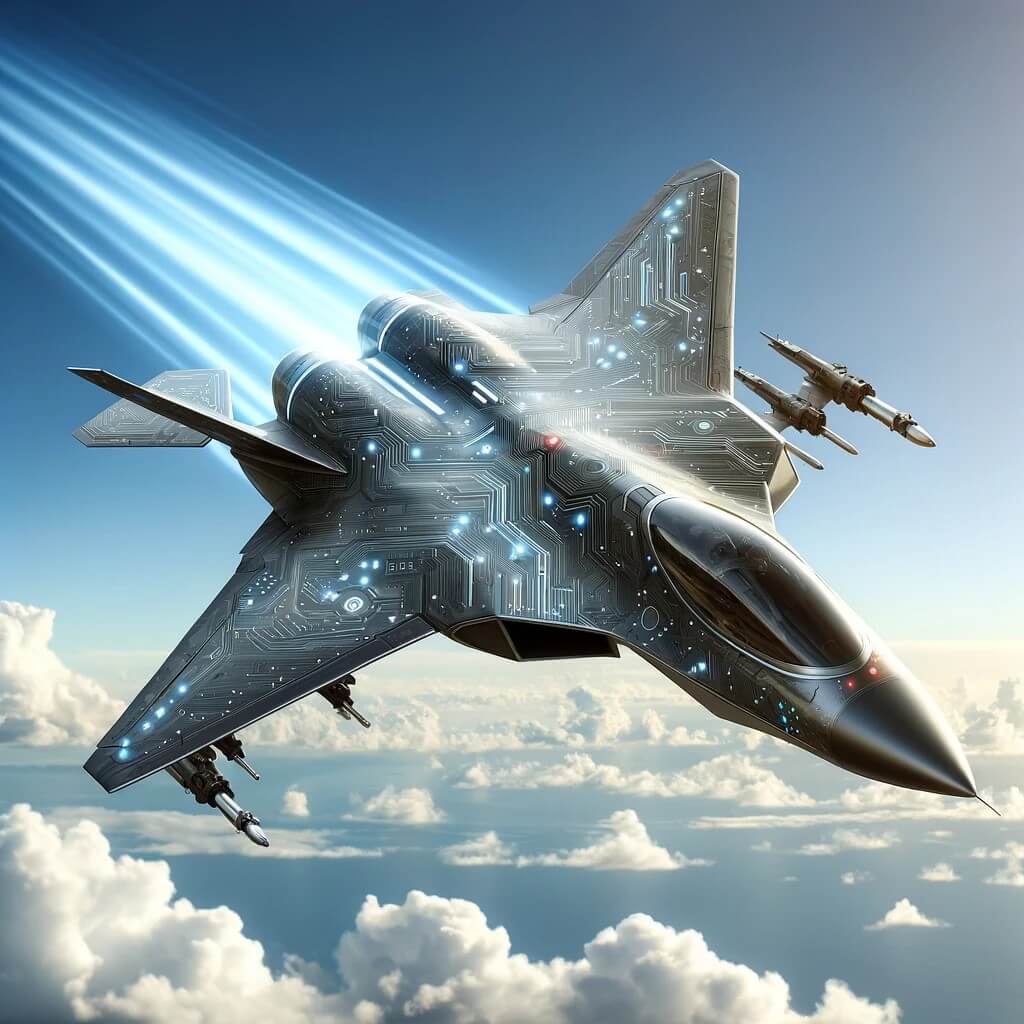In an era defined by technological advancement, the rules of warfare are undergoing a dramatic transformation. Artificial intelligence (AI) is emerging as a game-changer on the battlefield, raising complex questions about outsourcing decision-making and the ethical considerations surrounding its use. As nations rush to develop AI-driven military applications, it’s becoming increasingly evident that AI will play a decisive role in future conflicts.
One significant arena where AI is making its mark is in the skies. Boeing’s announcement of the MQ-28 “Ghost Bat” Drone in June 2023 marked a major milestone. This advanced drone employs AI to support existing fighter jet fleets by tracking friendly and enemy aircraft. However, what may come as a surprise is that the U.S. Air Force had already achieved autonomous flight with a fighter jet earlier that year.
In 2022, a modified F-16 fighter jet, the VISTA X-62A, successfully conducted an autonomous flight from Edwards Air Force Base in California. During its test flight, the VISTA demonstrated advanced fighter maneuver drills, marking a historic achievement as the first tactical aircraft successfully piloted with AI.
The Skyborg program: Augmenting human pilots
In 2019, the U.S. Air Force initiated the “Skyborg” program to develop an AI-enabled system to control unmanned aircraft. A year later, the program demonstrated its compatibility with aircraft from various contractors through its Autonomous Core System.
The U.S. Air Force’s 2023 budget request, surpassing $100 million, signals its commitment to advancing research in Autonomous Collaborative Platforms (ACP). These platforms offer the potential to provide cost-effective airpower, particularly in the Pacific theater. M. Christopher Cotting, director of research at the Air Force Test Pilot School, emphasized that the goal is not to replace human pilots but to augment their capabilities. AI can provide less experienced pilots with an edge, bridging the experience gap.
Preparing soldiers for AI integration
As AI becomes more prevalent in military applications, there is a growing need for soldiers to work effectively alongside AI systems. In partnership with the U.S. Air Force, MIT researchers initiated AI training programs for military personnel in 2023. These programs aim to equip soldiers with the skills needed to harness the full potential of AI technology on the battlefield.
AI’s impact extends beyond fighter jets. In 2022, the Israel Ministry of Defense unveiled plans to test the Robotic Autonomous Sense and Strike (ROBUST), a medium-sized robotic combat vehicle (MRCV). The ROBUST is designed to autonomously locate and engage targets, demonstrating the versatility of AI in military vehicles.
Similarly, Ukraine’s devDROID introduced AI-controlled turrets in 2023, designed for trench warfare. These turrets can rise from trenches, aim at targets, and calculate ballistics, although human operators confirm target engagement. This innovation promises to revolutionize infantry strategy.
AI’s influence extends from the skies to the seas. In December 2023, the U.S., U.K., and Australian Navies began testing AI to track Chinese submarines in the Pacific as part of the Aukus Pillar II technology-sharing agreement. AI algorithms process sonar data from various systems, enhancing the precision and efficiency of tracking submarines and surface vessels.
The growing trend of AI-integrated military craft offers numerous advantages, including cost savings, precision targeting, and reduced casualties. By reducing the human risk factor, operators can make more informed decisions during aerial combat. However, these advancements come with risks.
The challenge of cybersecurity
Establishing norms, functional roles, and infrastructure for unmanned combat systems is crucial in a volatile environment. A significant challenge lies in managing the cybersecurity of these AI-driven systems. Control and accountability for military system cybersecurity are often distributed across multiple organizations, leading to decision-making and accountability challenges.
While algorithms can streamline decision-making processes, they lack humans’ flexibility and instinctual judgment. In some situations, split-second decisions based on human instinct are critical for preserving lives. Striking the right balance between AI and human involvement remains a complex challenge.
Given the transnational nature of AI, understanding its challenges and opportunities is essential for drafting effective regulations. Emerging technologies like biotechnology, robotics, quantum computing, and AI have vast implications for military applications. Thus, it is imperative to establish clear regulatory frameworks before these capabilities become uncontrollable.
Global responses to AI in warfare
Governance challenges surrounding AI in defense and security are complex and multifaceted. The U.S. and European Union have taken significant steps toward regulating AI in military applications. President Joe Biden’s Executive Order aims to establish safe, secure, and trustworthy AI standards while countering adversaries’ military use of AI. The European Union has passed AI regulation legislation requiring companies to disclose training data and imposing substantial fines for violations.





